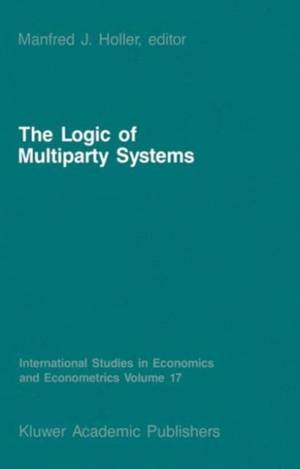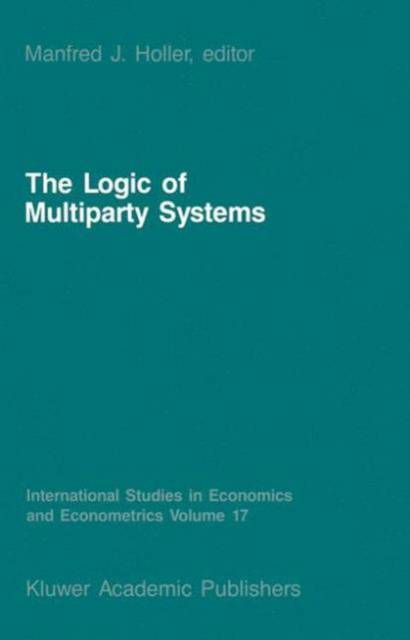
- Afhalen na 1 uur in een winkel met voorraad
- Gratis thuislevering in België vanaf € 30
- Ruim aanbod met 7 miljoen producten
- Afhalen na 1 uur in een winkel met voorraad
- Gratis thuislevering in België vanaf € 30
- Ruim aanbod met 7 miljoen producten
Zoeken
The Logic of Multiparty Systems
€ 95,04
+ 190 punten
Omschrijving
What determines the number of political parties in a democracy? Electoral rules certainly influence the incentives to create and maintain parties. However, a society's political culture can maintain parties despite electoral rules that give them poor prospects of success. Thus, comparing the number of parties and differences in electoral rules across countries cannot clearly test the effect of the electoral rules. A better test would examine a society with a fairly continuous political culture, but a change in electoral rules. Postwar France is such a society. While the basic social order has not changed, there was a drastic change in the electoral system in 1958, which theory implies would reduce the number of parties. Thus we can test the hypothesis that the number of parties fell with the change in electoral system. We can also calculate an " equivalent number of parties- to see how closely France approached a two - party system under the new regime. The first section describes the electoral rules under the Fourth and Fifth Republics. The second section develops a model that indicates how the change in electoral rules should have affected the incentives for multiple parties. The third section tests the hypothesis that the number of parties fell from the Fourth to the Fifth Republic. 1. Electoral Rules In the French Fourth Republic (1945 - 1958) political parties existed largely to serve the direct interests of their members.
Specificaties
Betrokkenen
- Uitgeverij:
Inhoud
- Aantal bladzijden:
- 446
- Taal:
- Engels
- Reeks:
- Reeksnummer:
- nr. 17
Eigenschappen
- Productcode (EAN):
- 9789024735150
- Verschijningsdatum:
- 31/07/1987
- Uitvoering:
- Hardcover
- Formaat:
- Genaaid
- Gewicht:
- 909 g

Alleen bij Standaard Boekhandel
+ 190 punten op je klantenkaart van Standaard Boekhandel
Beoordelingen
We publiceren alleen reviews die voldoen aan de voorwaarden voor reviews. Bekijk onze voorwaarden voor reviews.











